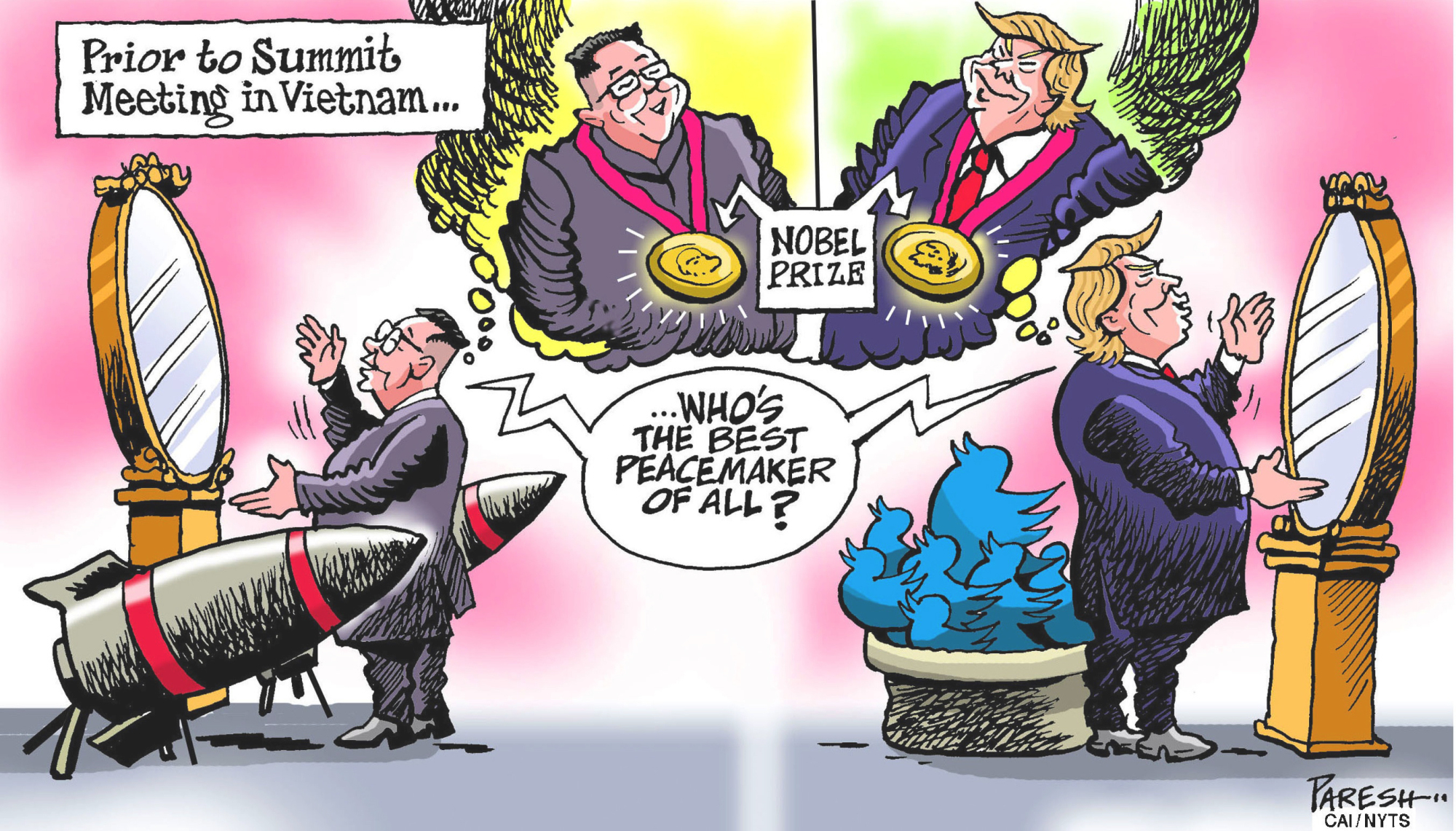Upon taking office in January 2017, U.S. President Donald Trump intensified America's efforts to isolate North Korea. And at first, his administration's diplomatic and pressure campaign seemed to show real progress, particularly in Africa, where North Korea maintains economic and military ties with more than two dozen countries.
But that progress was suddenly reversed last year, when Trump prematurely declared victory in the aftermath of his summit with North Korean leader Kim Jong Un in Singapore. On Wednesday and Thursday, Trump will hold his second summit with Kim. If he repeats the same mistake, his own administration's efforts to isolate North Korea will take another beating and Kim will have even less reason to end his weapons program.
Before the Singapore summit, the Trump administration had been strengthening United Nations sanctions against North Korea, emphasizing enforcement and reaching out to African countries to secure their support. And this combination of U.S. high-level engagement, cajoling and arm twisting led several African governments — including those of Egypt, Sudan, Uganda and Angola — to announce that they would scale back their ties to North Korea. While some committed to expelling North Korean military trainers, others promised to stop buying North Korean arms and doing business with U.N.-sanctioned companies. These steps promised to isolate North Korea further and reduce its access to the hard currency needed to sustain its nuclear and missile programs.

















With your current subscription plan you can comment on stories. However, before writing your first comment, please create a display name in the Profile section of your subscriber account page.